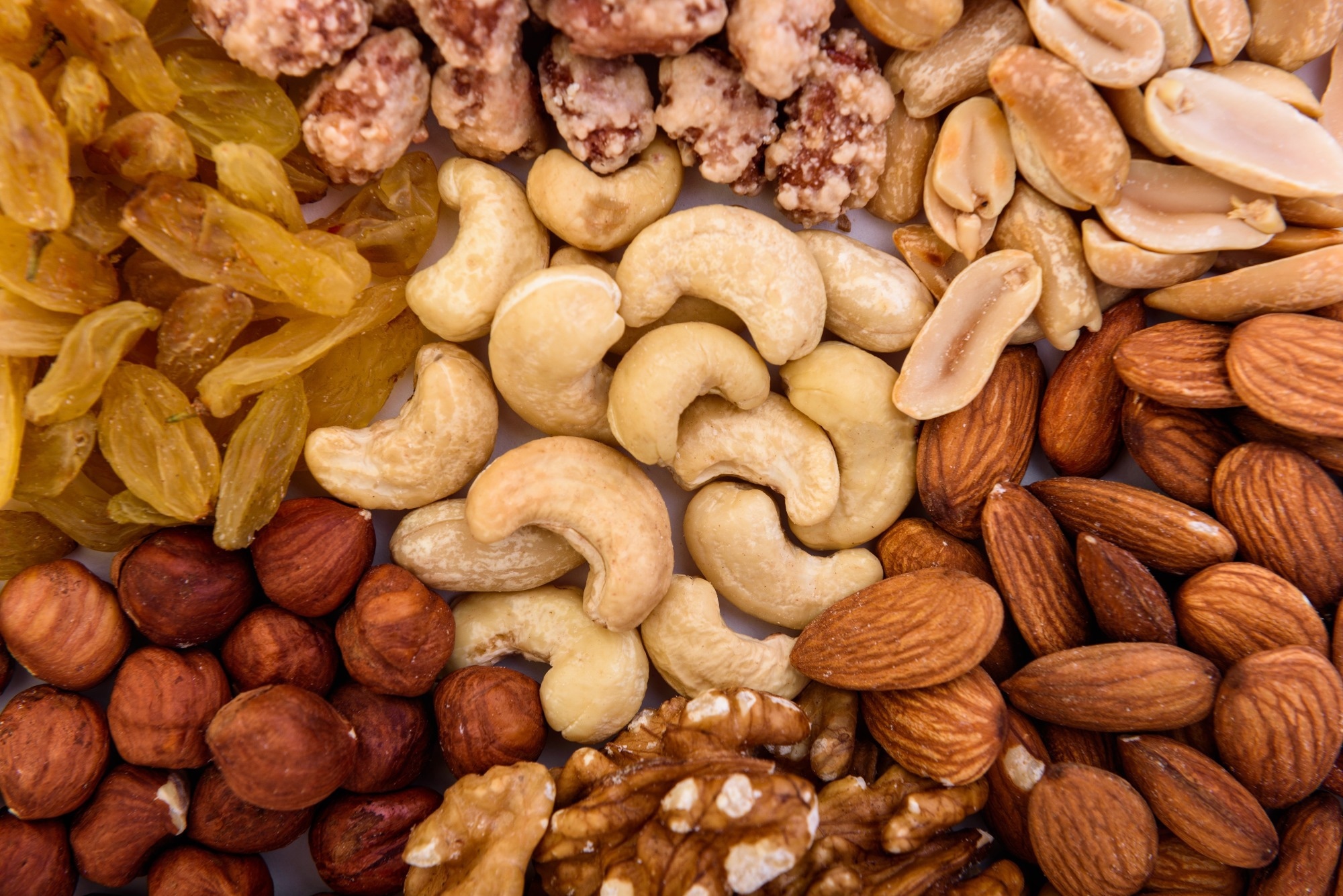How many almonds or walnuts must you snack on to transform your gut? New research reveals the real, modest impact and why most healthy guts resist big changes.
 Study: The effects of nut intake on gut microbiome composition and gut function in adults: a systematic review and meta-analysis. Image credit: Natallia Ploskaya/Shutterstock.com
Study: The effects of nut intake on gut microbiome composition and gut function in adults: a systematic review and meta-analysis. Image credit: Natallia Ploskaya/Shutterstock.com
A systematic review and meta-analysis of clinical trials published in the journal Advances in Nutrition demonstrated that nut intake has only a modest impact on gut microbiota and overall gut health.
Background
Nuts are nutritionally enriched foods with low saturated fat and high amounts of unsaturated fats, vitamins, minerals, proteins, fibers, and bioactive compounds, such as polyphenols.
Nuts are central components in many healthy dietary patterns, such as the Mediterranean diet (MedDiet) and the Dietary Approaches to Stop Hypertension (DASH). These diets are known for their health benefits, such as reduced risks of diabetes, cardiovascular disease, and cognitive disorders. Nuts also serve as an alternative plant-based protein source in sustainable diets.
Studies investigating the mode of action of nuts have revealed that the polyphenols and fibers present in nuts serve as substrates for bacterial fermentation in the gut, leading to increased proliferation of certain potentially anti-inflammatory beneficial bacteria. In other words, the health benefits of nuts are associated with their prebiotic effects on the composition, diversity, and functionality of gut microbiota.
This systematic review was designed to comprehensively assess the effects of nuts on gut microbiota composition and gut microbiota-derived metabolites in adults. Another aim was to examine the impact of nuts on gut function and symptoms.
The review included 28 interventional trials that investigated the effects of nut interventions on microbiota diversity, specific bacterial abundances, gastrointestinal symptoms, intestinal permeability, fecal pH, fecal moisture, and short-chain fatty acid (SCFAs) concentrations.
Findings
This systematic review of the most recent interventional trials revealed predominantly modest and highly variable effects of nut interventions on gut microbiota and overall gut health.
The selected trials primarily investigated the effects of almonds, walnuts, peanuts, pistachios, and Brazil nuts, with almonds being the most studied.
A total of 19 trials investigated the effects of nut interventions on alpha and beta diversities of gut microbiota. Most of these trials reported no significant differences following nut interventions. This indicates that gut microbiota's overall community structure and diversity is largely resistant to modification by nut consumption, and any effects are likely subtle rather than widespread.
Regarding gut microbiota composition, a considerable variation was observed between trial findings. Instead of broad bacterial community-wide changes, most trials reported selective and nut-specific responses in specific bacterial populations.
The most consistent impact of nut intervention was observed on the bacterial genera Clostridium and Roseburia. However, the direction and magnitude of these changes were not uniform across different nut types, and even when effects were seen, the changes were small, and their clinical significance is uncertain.
Trials investigating almond and walnut interventions reported an increased abundance of Roseburia. In contrast, trials investigating mixed nut intervention reported no significant impact. Similarly, trials investigating the effects of almond or walnut intervention on Bifidobacterium abundance produced mixed results.
These observations indicate that different types of nuts can differentially influence specific gut bacterial populations. Such differential effects may be attributed to the variation in nutritional composition of varying nut types, especially their fiber content and polyphenol content.
Five trials investigating the impact of nut interventions on fecal SCFAs revealed a significant positive effect only on propionate, with no significant effect on acetate or butyrate. Among different nuts, almonds, hazelnuts, and pistachios intake caused significantly lower SCFA levels than cashews. This variation may be attributed to the differences in glucose concentrations. However, even the observed increases in propionate were generally small.
Trials investigating fecal pH and intestinal permeability reported no significant effects of nut interventions. In contrast, two trials reported unfavorable effects of nut interventions on fecal moisture. This means that nut interventions, in some cases, were associated with lower fecal moisture compared to controls. The clinical implications of this finding are unclear.
Regarding gastrointestinal symptoms, two trials reported beneficial effects of almond intervention on constipation. Only one trial reported a similar beneficial effect of almond intervention on reflux and diarrhea.
Notably, these benefits were not observed in all studies, and mixed nut interventions did not show consistent improvements in constipation or other GI symptoms. Overall, changes in GI symptoms were limited and may not be clinically significant in generally healthy adults.
The absence of strong effects of nut interventions on gut health may be attributed to several factors, including study population characteristics, length of the interventions, and variable nut processing methods utilized. The trials selected for this systematic review and meta-analysis mostly involved healthy individuals with a relatively low initial gastrointestinal symptom burden, limiting the opportunity for improvement with nut interventions.
Furthermore, some trials recruited habitual nut consumers, which may hinder significant effects on the gut microbiota since these people could be accustomed to these food components.
The observed heterogeneity in study design highlights the need for standardized methodologies to assess the specific effects of different nut types on gut microbial composition and function. This will help clarify the mechanisms through which specific nut varieties contribute to gut health and inform dietary recommendations. Variability in intervention duration, participant health status, nut processing, and microbiota measurement techniques likely contributed to inconsistent results.
The review observations also highlight the need for large, well-designed randomized controlled trials to determine dose-response effects and long-term changes in gut microbiota in response to different nut varieties. Standardizing methods across studies and examining whether any observed microbiota changes translate to meaningful health benefits will be essential for future research.
Download your PDF copy now!